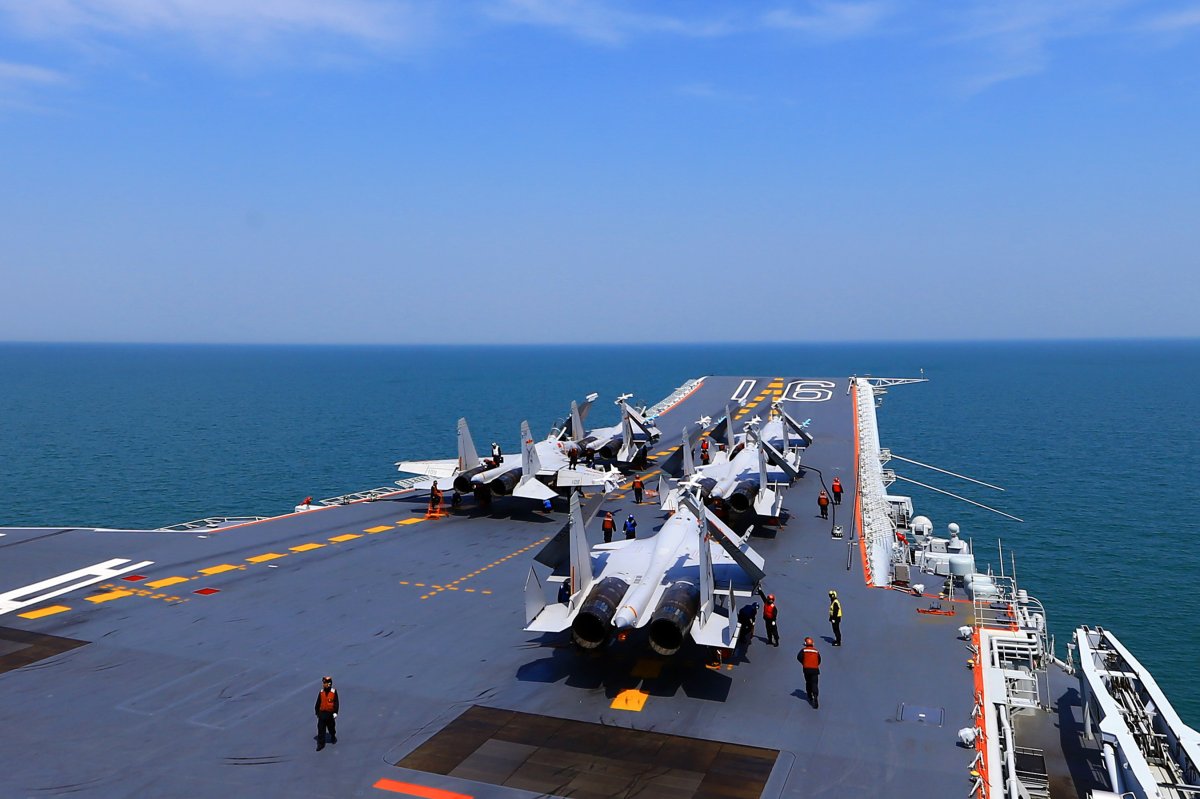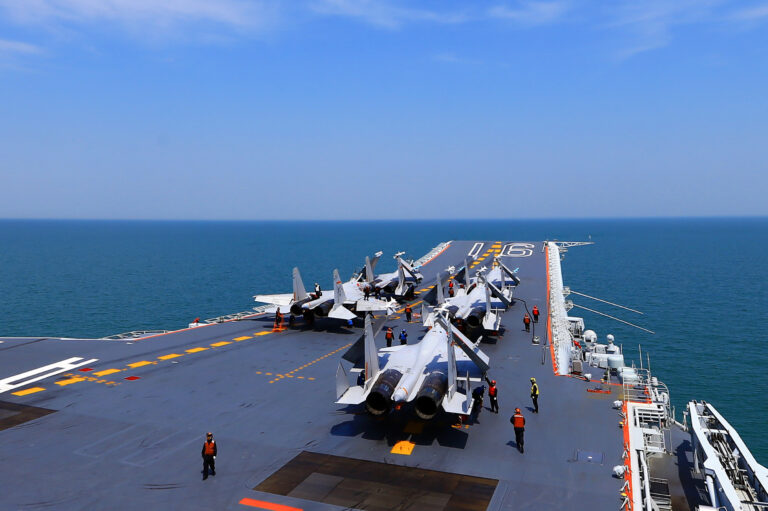Joint drills are taking place in the Sea of Japan by Russia and China following President Donald Trump’s announcement that he had deployed U.S. nuclear submarines in response to threats from Vladimir Putin’s ally.
The Maritime Interaction 2025 exercises with Beijing had been planned before Trump denounced as “foolish and inflammatory” nuclear threats from former Russian President Dmitry Medvedev.
But the drills are the latest sign of deepening military cooperation between the countries as Trump’s announcement adds to growing tensions between Moscow and Washington.
Retired U.S. Vice Admiral Robert Murrett told Newsweek that Trump’s announcement about submarines could reflect a minor shift in the overall posture of U.S. nuclear forces.

Getty Images
Why It Matters
Before Putin launched his full-scale invasion of Ukraine, Russia and China signed a “no limits” strategic partnership, and since then, their military and economic ties have increased, although Beijing has claimed neutrality in the war.
China and Russia have carried out annual drills for years, but the latest ones come at a sensitive time in which Trump has expressed his growing anger with Putin and responded to Medvedev’s nuclear saber rattling.
What To Know
The navies of Russia and China are conducting joint artillery and anti-submarine drills in the Sea of Japan, near the Russian port of Vladivostok, as part of the “Maritime Interaction-2025” exercise, Russian officials said on Sunday.
Russian and Chinese media said the drills involved the joint detachment of Russian and Chinese warships, including a large Russian anti-submarine vessel and two Chinese destroyers.
Also taking part were diesel-electric submarines from both countries and a Chinese submarine rescue ship.
Four Chinese vessels, including guided-missile destroyers Shaoxing and Urumqi, were taking part, according to China’s Defense Ministry.
The drills, which are scheduled to end on Tuesday, include artillery fire exercises, anti-submarine warfare training, air defense operations, and joint search and rescue missions.
They follow Trump’s comments on Friday that he had ordered the deployment of U.S. nuclear submarines in response to “highly provocative” statements from Medvedev about the possibility of war between the countries.
Medvedev, who was Russian president between 2008 and 2012 and is now deputy chairman of the Federation Council, issued a veiled nuclear threat against the U.S. as referred to the “Dead Hand” system of retaliatory nuclear strikes created during the Soviet era.
Trump called the comments “foolish and inflammatory” but did not specify whether he meant nuclear-powered or nuclear-armed submarines, nor did he reveal the locations, which would be kept secret by the U.S. military.
Murrett, the deputy director of the Syracuse University Institute for Security Policy and Law, told Newsweek that what may have happened in response to the untoward remarks by Medvedev pales in comparison to some of the nuclear posturing that took place between the U.S. and Russia throughout the Cold War.
“Having said that, any shift in nuclear posture should be carefully calibrated, and act as a deterrent and not a prelude to unchecked increased tensions,” Murrett added.
What People Are Saying
President Donald Trump said of Dmitry Medvedev’s post: “Words are very important, and can often lead to unintended consequences.”
Russia’s Pacific Fleet, in a statement: “Ships and vessels of the Russian Navy and the Naval Forces of the People’s Liberation Army of China entered the Sea of Japan from Vladivostok to conduct the practical part of the joint Russian-Chinese exercise “Maritime Interaction —2025.”
Retired U.S. Vice Admiral Robert Murrett told Newsweek: “The possible repositioning of USN submarines could reflect a minor shift in the overall posture of U.S. nuclear forces which are constantly assessed.”
Pavel Podvig, head of the Strategic Nuclear Weapons of Russia project, told Russian outlet RBC: “There is no qualitatively new and more serious threat to Russia here, rather the statement is more of symbolism.”
What Happens Next
Although the drills end on Tuesday, Japan’s Ministry of Defense warned that China’s military cooperation with Russia poses serious security concerns.
Meanwhile, Medvedev has not posted on social media since July 31, and Russian media outlets have largely not reacted to his spat with Trump, which could suggest a truce in the online war of words.


